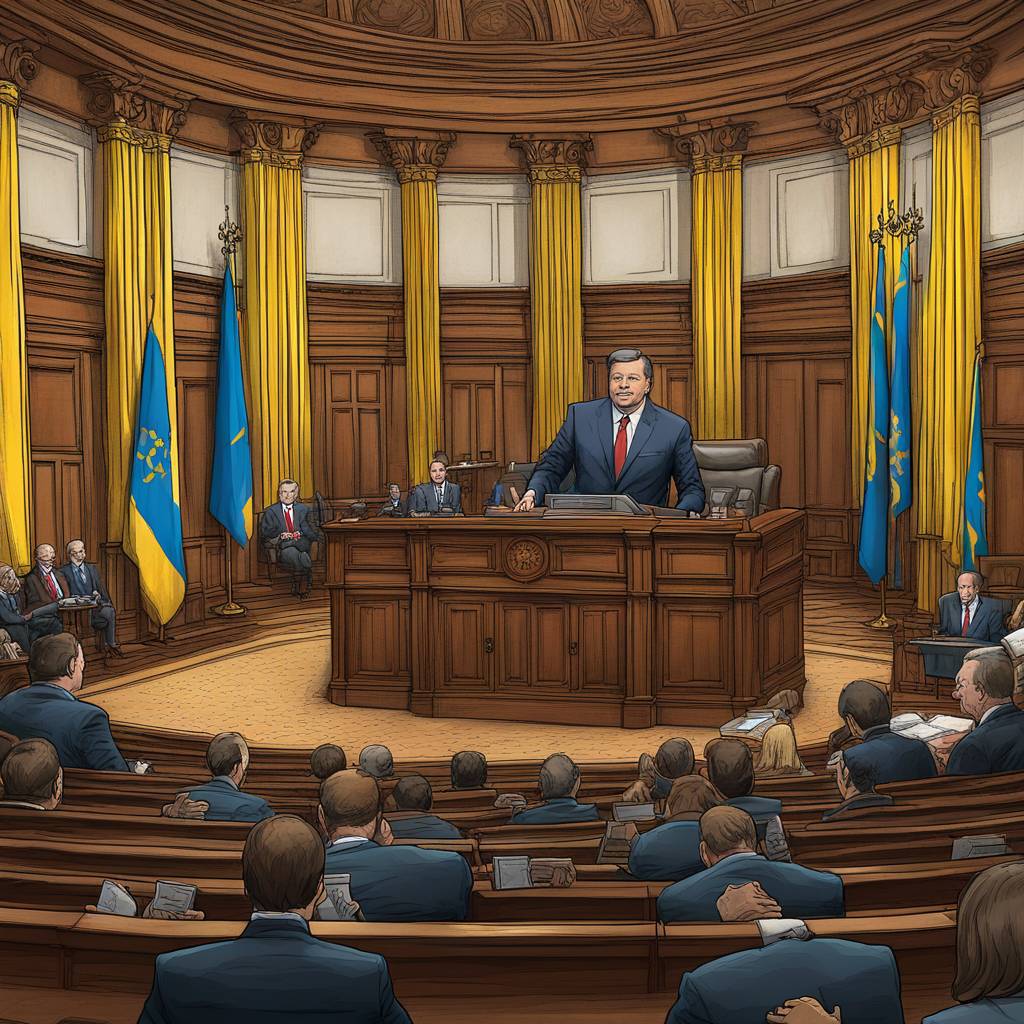House Speaker Mike Johnson is facing intense pressure in deciding on the best course of action regarding Ukraine aid as lawmakers prepare to return to Washington. With a narrow majority and his speakership at risk, Johnson is exploring various options to address the aid issue. He is considering including additional provisions along with the Senate’s $95 billion aid package for Ukraine, Israel, and Taiwan. One option being considered is the REPO Act, sponsored by Republican Rep. Mike McCaul, which would seize Russian assets to support Ukraine’s recovery efforts.
Conservatives within the Republican Party are divided on the issue of providing further aid to Ukraine. Some are open to aid as long as it is offset or structured as a loan, while others adamantly oppose any additional assistance. Johnson faces the challenge of finding a bill that can garner enough votes in the House, given the strong opposition from some conservatives and the need for Democratic support. One strategy being considered is splitting the aid package to allow separate votes on aid to Israel and Ukraine, potentially increasing Democratic support for the Ukraine aid component.
Johnson will also need to navigate pressure from defense hawks who are expecting action on Ukraine aid. There is a lack of clarity on the specific product and strategy for passing the aid package, which has complicating factors such as the opposition to aid to Israel from some progressives. In addition, Johnson is exploring the idea of easing natural gas exports as a potential solution, although the effectiveness of this maneuver remains uncertain. Democrats are committed to providing additional aid to Ukraine but are waiting for Johnson to outline a clear plan before fully committing.
While Democrats are open to some of the ideas Johnson has floated, they are awaiting a more concrete plan before taking further action. The White House has indicated a willingness to consider structuring additional aid as a loan if that is the route the House chooses. The issue of including humanitarian aid to Gaza is crucial for many Democrats, as these provisions were part of the Senate’s bill. Johnson faces a challenging path ahead as he strives to navigate the complexities of the aid legislation and secure bipartisan support in the House.
In light of the various viewpoints within the Republican Party and the need for bipartisan cooperation, Johnson must carefully weigh his options and consider the potential consequences of his decisions. The coming weeks will be critical as lawmakers return to Washington and the debate over Ukraine aid intensifies. Johnson’s actions in response to the Ukraine aid issue could have significant implications for his speakership and the broader political landscape. Amidst the complexities of the situation, finding a viable solution that balances competing interests and secures necessary support will be paramount for Johnson.


